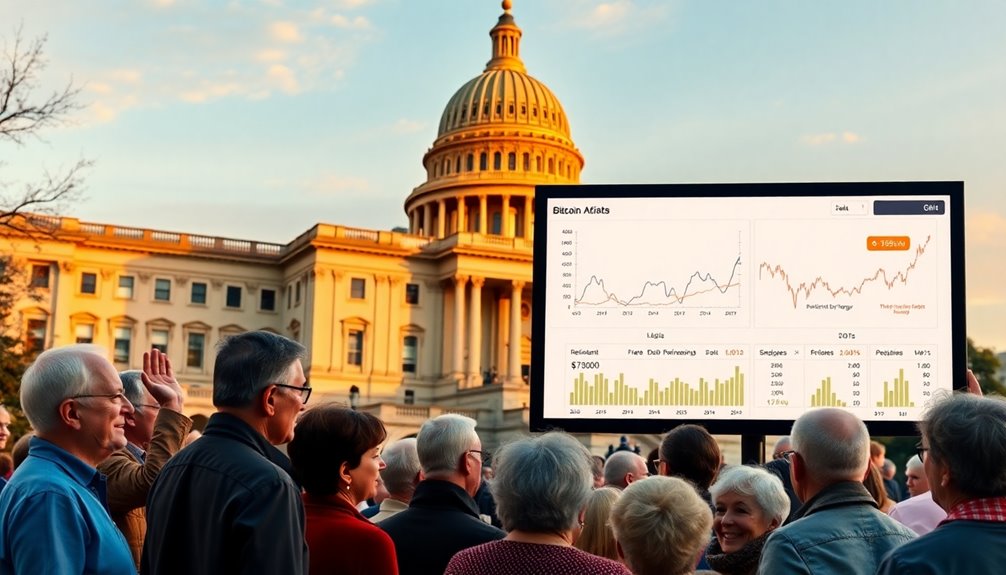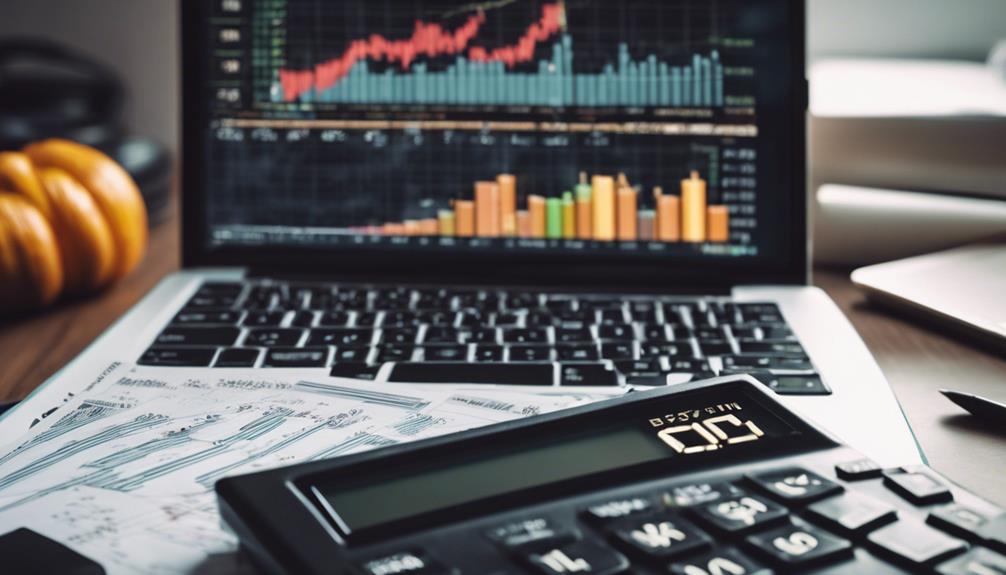You might have noticed how state-level initiatives are rapidly outpacing national efforts when it comes to Bitcoin investments. States like Texas and Pennsylvania are considering substantial allocations to Bitcoin reserves, reshaping the landscape of public finance and retirement portfolios. This trend suggests a significant shift in how local communities view cryptocurrency. But what does this mean for the future of investments and inflation hedges? The answer could reshape your financial strategies.

As states like Texas, Pennsylvania, and Ohio consider Bitcoin reserve proposals, the landscape of public finance is shifting towards cryptocurrency. You're witnessing a transformative moment where five states—Texas, Pennsylvania, Ohio, New Hampshire, and North Dakota—are exploring the potential of Bitcoin as a financial asset. The Satoshi Action Fund has stepped in with model legislation that many of these states are adopting, marking a significant pivot in public investment strategies.
Take Pennsylvania, for instance. Their proposal could allocate up to 10% of state funds to Bitcoin, which might inject nearly $1 billion into its reserves. Imagine how that could change the state's financial outlook. Bitcoin IRA offers tax-efficient growth for retirement savings, making it an appealing option for state investments.
Meanwhile, Texas emphasizes security in its approach, proposing to store Bitcoin in cold storage for at least five years. This measure aims to mitigate the risks associated with Bitcoin's notorious volatility. The bill even allows public donations to the Bitcoin fund, fostering community engagement and support. Bitcoin mining consumes substantial electricity, further complicating the state's energy landscape.
However, it's essential to consider the economic implications. Bitcoin's price isn't stable; it can swing dramatically, posing significant risks for state investments. If a state were to invest heavily and the market tanked, it could find itself in a precarious financial situation.
Beyond just price volatility, Bitcoin mining demands enormous amounts of electricity, raising environmental concerns and stressing existing infrastructure. Proponents argue that Bitcoin could serve as a hedge against inflation, similar to gold, but it's crucial to note that Bitcoin reserves don't produce dividends like traditional investments do.
Political dynamics also play a role in this shift. The crypto industry has invested over a quarter billion dollars in lobbying efforts to support lawmakers who favor cryptocurrency. With a crypto-friendly administration potentially on the horizon, the momentum for state-level Bitcoin initiatives could grow. The Satoshi Action Fund is actively promoting these legislative efforts, pushing states toward adopting Bitcoin reserves.
You might also notice technological trends influencing these decisions. Bitcoin recently surged past $100,000, capturing state interest as a promising asset. The SEC's approval of Bitcoin ETFs has made it easier for institutional investors, including pension funds, to explore Bitcoin investments.
With Bitcoin's capped supply of 21 million units and its established presence as the most recognizable cryptocurrency, states are betting on its potential. As this new crypto era unfolds, you're seeing states take the lead, potentially outpacing national ambitions in reshaping retirement portfolios and public finance strategies.










